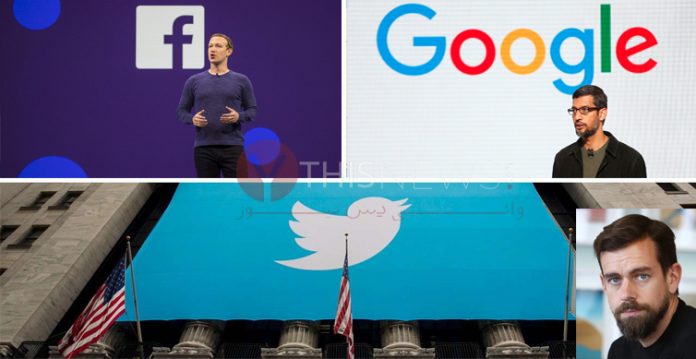New York: Scoldings like “Sham!”, “Baloney!” and “who the hell are you” overshadowed a Senate hearing on Wednesday where the CEOs of Twitter, Facebook and Google took heat in a conversation match with US lawmakers over the idea of free speech and alleged anti-conservative bias on the organizations’ strong platforms.
The Congressional grilling immediately moved into the domain of political circus around the social media content moderation dumpster fire.
With less than seven days to go for the US political election, Republican lawmakers got an earful from critics for the timing of the “sham” hearing.
At the core of the heated arguments were 26 words concealed in a 1996 US law – Section 230 of the 1996 Communications Decency Act.
Segment 230 declares: “No provider or user of an interactive computer service shall be treated as the publisher or speaker of any information provided by another information content provider.”
Under American law, Internet firms are commonly excluded from liability for the content that users post on platforms. President Donald Trump has disputed this by means of the executive order which takes steps to strip those protections if online platforms swim into “editorial decisions”.
For as long as 3 hours and 42 minutes, the CEOs of Twitter, Facebook, and Google were forced to bear a firehose variant of bipartisan alert over their extraordinary power to impact behavior at scale.
The Republicans’ drumbeat fixated on Facebook’s and Twitter’s decision prior this month to hit the brakes on an unverified political story from the conservative-leaning New York Post about Democratic presidential candidate Joe Biden. The story referred to unverified emails from Biden’s son Hunter.
Trump acolytes hopped on the opportunity to demonstrate their loyalty. One of them called Twitter’s action on the newspaper a pattern of censorship and silencing Americans with whom Twitter disagrees.
For their part, Twitter, Facebook, and Google have tried to frame precisely how they would intervene and in how many situations. Also, what about the content that doesn’t fall into their precast rubric or classes of wrong stuff? The appropriate responses have been not exactly clear.
Of the three organizations, Facebook’s influence over behavioral targeting has raised a line of red flags in the context of the US 2020 political election.
Various legislators stood up against the possibility of “delegated San Francisco elites” choosing if content measures up or not.
In opening comments, Dorsey, Zuckerberg, and Pichai addressed the proposals for changes to Section 230. Zuckerberg said Congress should update the law to make sure it’s working as intended.
Google CEO Sundar Pichai said that if Google was “acting as a publisher”, he would be fine with the firm being liable for content published on its platform.
Wednesday’s hearing comes only seven days after the US Justice Department’s landmark antitrust lawsuit against Google which contends that the two advertisers and regular individuals are hurt by the tech goliath’s situation as “the unchallenged gateway to the Internet for billions of users worldwide.”
Cautions abound of the coming limitations and for the “free pass” to end, perhaps on the opposite side of the political election results.


